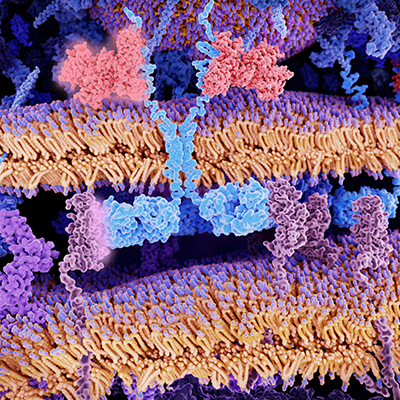October 20, 2022 -- Patients with hypophosphatemia had higher incidences and more severe neurological side effects on chimeric antigen receptor (CAR) T-cell therapy than those with normal blood phosphate levels, according to a study published October 19 in the journal Cancer Immunology Research.
Neurological toxicity associated with CAR T-cell therapy, known as immune effector cell-associated neurotoxicity syndrome (ICANS), affects approximately 50% of patients. Current treatment is limited to supportive care and steroids, but what if clinicians could predict which patients would experience ICANS? That's precisely what University of California, Los Angeles (UCLA) researchers sought to determine.
They co-cultured lymphoma cells expressing the CD19 antigen with CD19-targeted CAR T cells and conducted a retrospective analysis of 77 patients with B-cell malignancies treated at UCLA with CD19-targeted CAR T-cell therapy.
The researchers found lymphoma cell killing in vitro was associated with reduced phosphate concentrations in the culture media and that CAR T cells co-cultured with lymphoma cells consumed significantly more phosphate than when cultured alone. The increased consumption also correlated with activation after CD19 antigen recognition and with elevated phosphate-dependent metabolic activity.
The findings indicated CAR T cell-mediated cell killing results in heightened metabolic demand that could drive hypophosphatemia in patients: 30% developed ICANS and approximately 60% had serum phosphate concentrations lower than 2mg/dL. The serum levels of potassium and magnesium were also low in 52% and 72% of patients but only low phosphate was significantly associated with ICANS.
Most patients (91%) who developed ICANS also displayed hypophosphatemia. These patients had the lowest phosphate concentrations five days after CAR T-cell infusion, which coincided with the median time to onset of ICANS.
Some patients with hypophosphatemia did not develop ICANS, but patients with ICANS consistently had more severe degrees of hypophosphatemia. And the severity of hypophosphatemia correlated with the severity of the ICANS they developed. ICANS also lasted longer in low-phosphate patients, according to the researchers.
Copyright © 2022 scienceboard.net








